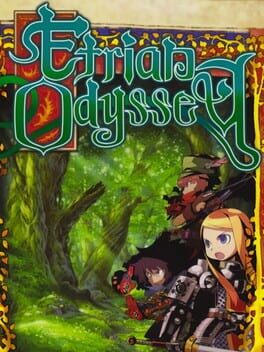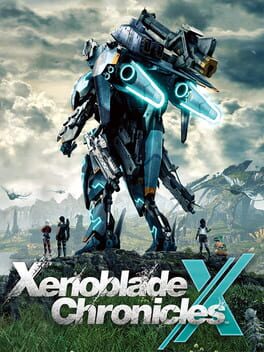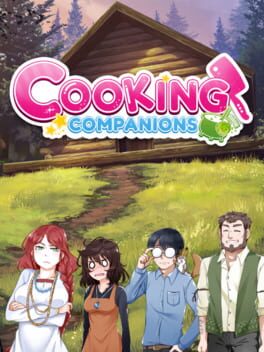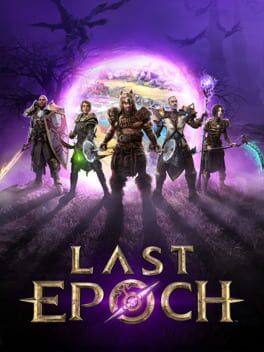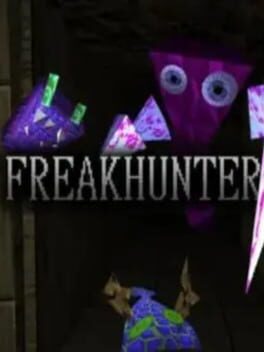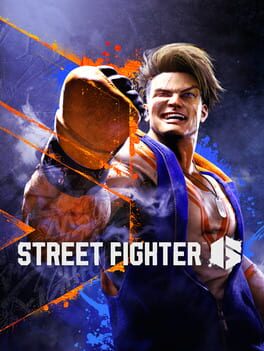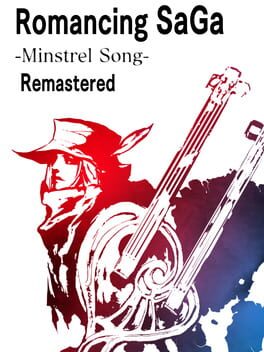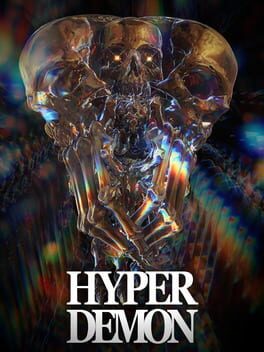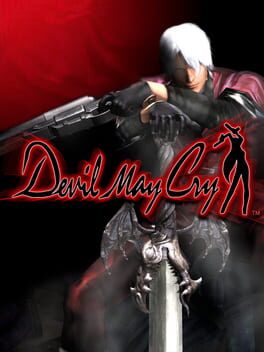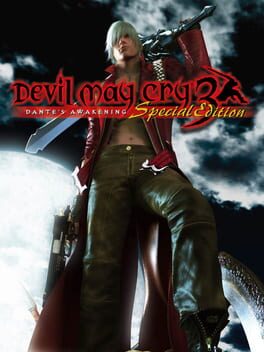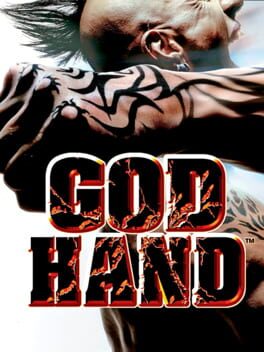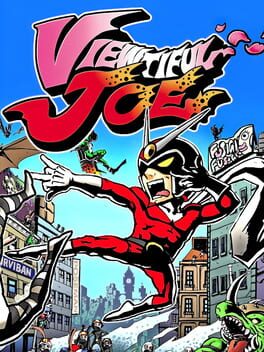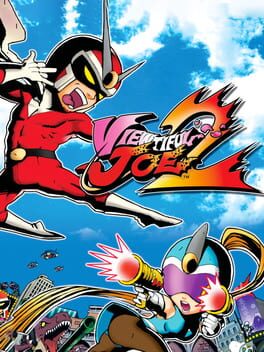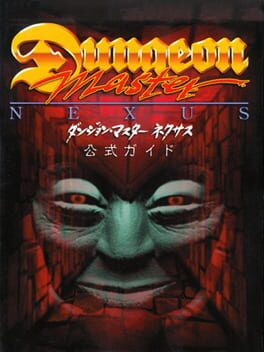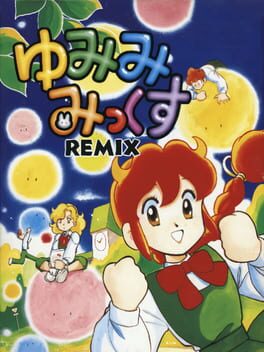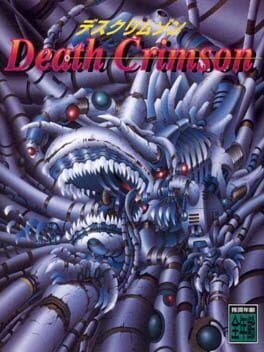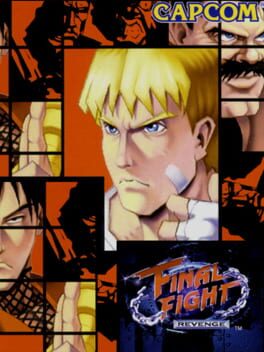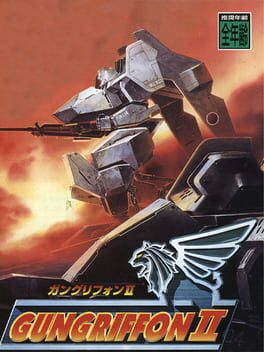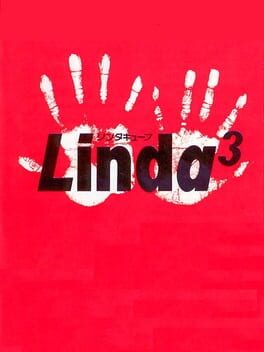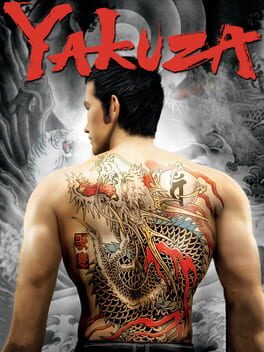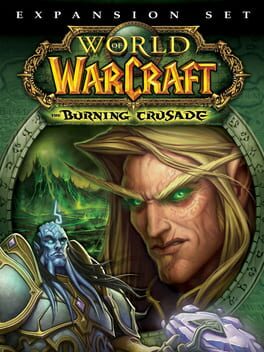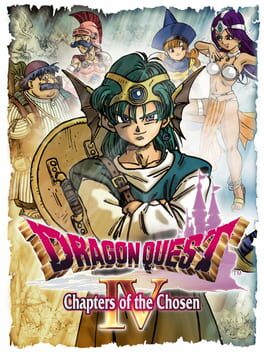235 reviews liked by Lunick
Etrian Odyssey
2007
1. I played the 'Untold' 3DS remake first, which informed how I approached the game. I was liberal with guides, feeling "well, I've already done all this, so it's okay". I hope I didn't damage the intended difficulty, which I thought was as challenging my Untold playthrough on 'Standard'.
2. My favourite part of Etrian Odyssey - any version - is drawing the map, no contest. It's beyond satisfying seeing an empty map grow into a full one, and empowering to use what you've drawn as a resource in exploration. A fun part of going backwards to this version, though, was how much more limited your mapping tools are! There's only a couple icons, and you can't paint the floor tiles different colours, or draw paths to auto-walk down. I say 'fun' because I found this a fun challenge! I used the limited tool set to communicate the floor's specific mechanics in more creative and concise ways. Ironically, the restrictions made my maps more personal!
3. The lack of 'Floor Jump' was the biggest change coming from 'Untold'. (You enter the dungeon at any floor you've explored instead of a checkpoint every five floors.) I like the game more without it! Clambering down to where I was last made the labyrinth bigger, fighting to get there felt stressful, and learning what paths to take made it more familiar. Fast travel makes for a less interesting experience.
4. Respect having the items you need for pub side quests so painfully scarce. Farming them typically gets a level up, so I never needed to grind them out. It's pretty elegant - though frustrating in the moment.
5. Having to think about how my characters react to the story was fun - a lot different from Untold, which has a premade cast and cutscenes. My imagination never ran that wild, but getting to think up little scenarios for my fellows was cute. That said, I did regret basing them on my actual friends. I was always worried about them acting out of character...
2. My favourite part of Etrian Odyssey - any version - is drawing the map, no contest. It's beyond satisfying seeing an empty map grow into a full one, and empowering to use what you've drawn as a resource in exploration. A fun part of going backwards to this version, though, was how much more limited your mapping tools are! There's only a couple icons, and you can't paint the floor tiles different colours, or draw paths to auto-walk down. I say 'fun' because I found this a fun challenge! I used the limited tool set to communicate the floor's specific mechanics in more creative and concise ways. Ironically, the restrictions made my maps more personal!
3. The lack of 'Floor Jump' was the biggest change coming from 'Untold'. (You enter the dungeon at any floor you've explored instead of a checkpoint every five floors.) I like the game more without it! Clambering down to where I was last made the labyrinth bigger, fighting to get there felt stressful, and learning what paths to take made it more familiar. Fast travel makes for a less interesting experience.
4. Respect having the items you need for pub side quests so painfully scarce. Farming them typically gets a level up, so I never needed to grind them out. It's pretty elegant - though frustrating in the moment.
5. Having to think about how my characters react to the story was fun - a lot different from Untold, which has a premade cast and cutscenes. My imagination never ran that wild, but getting to think up little scenarios for my fellows was cute. That said, I did regret basing them on my actual friends. I was always worried about them acting out of character...
Science Fantasy Like-a-Dragon Disneyland
Continuing the trend of FF's video-game-card-games being the only ones I enjoy.
Continuing the trend of FF's video-game-card-games being the only ones I enjoy.
1. Awful as it is, I doubt I could have finished without the shutdown deadline. Xenoblade X took me 180 hours over two years - 30 with COVID in 2022, and 150 to get ahead of the shutdown in 2024. Maybe it was a good thing!!
2. I got really stuck in Chapter 10. I felt I had intuited combat, so I looked online for some advice. I realised I had absolutely no idea how the self-healing mechanic worked. It's easy to be annoyed when you have a moment like that, but I like it.
I don't understand why I win encounters, because the game doesn't want to tell me that. What I do understand is what to do to win, which is what the game actually taught me. Because I never managed to kill Xenoblade X, it feels more alive. Fights could always go either way, so I try my best to survive with the tools I have. I think that feeling is perfect for this game. I definitely think it's why I kept feeling tense in fights for 180 hours.
3. I was disappointed that after your mech starts flying about 120 hours in, the area themes all get replaced by a jaunty Sawano track. But I realise now that the Skell flying theme was actually a valiant, self-sacrificing hero, protecting the area themes from being zoned out by the player after 180 hours. Thank you, Monolith. Thank you, Sawano.
4. It's fascinating how good the side missions & affinity missions are. Xenoblade X's narrative is about a merc exploring a whole different planet, taking on the wildest sicko-inclined jobs, and spending time with their cool friends while nasty things happen to them. Xenoblade X is not about the main story, which is about 5% of the runtime. The moment you realise and appreciate that, you recognise how great it is to be engaging in X-Files nightmares through the cockpit of your giant mech.
5. Worth noting you only enter that cockpit after spending 60 hours on the ground earning your license. This is the true face of pinnacle.
2. I got really stuck in Chapter 10. I felt I had intuited combat, so I looked online for some advice. I realised I had absolutely no idea how the self-healing mechanic worked. It's easy to be annoyed when you have a moment like that, but I like it.
I don't understand why I win encounters, because the game doesn't want to tell me that. What I do understand is what to do to win, which is what the game actually taught me. Because I never managed to kill Xenoblade X, it feels more alive. Fights could always go either way, so I try my best to survive with the tools I have. I think that feeling is perfect for this game. I definitely think it's why I kept feeling tense in fights for 180 hours.
3. I was disappointed that after your mech starts flying about 120 hours in, the area themes all get replaced by a jaunty Sawano track. But I realise now that the Skell flying theme was actually a valiant, self-sacrificing hero, protecting the area themes from being zoned out by the player after 180 hours. Thank you, Monolith. Thank you, Sawano.
4. It's fascinating how good the side missions & affinity missions are. Xenoblade X's narrative is about a merc exploring a whole different planet, taking on the wildest sicko-inclined jobs, and spending time with their cool friends while nasty things happen to them. Xenoblade X is not about the main story, which is about 5% of the runtime. The moment you realise and appreciate that, you recognise how great it is to be engaging in X-Files nightmares through the cockpit of your giant mech.
5. Worth noting you only enter that cockpit after spending 60 hours on the ground earning your license. This is the true face of pinnacle.
Balatro
2024
Oh. That's crack. That's cocaine crack drugs on the Steam top sellers list.
I don’t know if this is the best version of Final Fantasy VII, but it certainly is the most!
Where Remake strove to create a focused and authentic sense of place with its reimagining of Midgar, Rebirth feels like it’s shooting to recreate a different part of what defines a PSX era Final Fantasy - this has the original game’s tonal mania, a billion exhaustively realised minigames of varying quality, and a bunch of busy mechanics with intended and unintended interactions capable of breaking the whole game wide open.
Rebirth builds upon and improves all the things I liked about Remake, while also introducing a glut of new wrinkles and mechanics that turn a relatively streamlined action RPG into a Xenoblade enjoyer’s delight - with all the baggage that brings with it. The sidequests are so much better than they were in the previous game,but the open world activities are mostly pretty bad! The overworld is otherwise really compelling in its own right, and didn’t need a bunch of extraneous shit added to it to justify its existence - the Ubisoft style towers that mark all points of interest are particularly egregious when every activity in the open world already has a visual cue that guides you to it. If they’d taken out maybe half of the open world content and made an effort to make the stuff that remained feel a bit more unique from region to region, they could have had something pretty special - but the checklist of activities across the map doesn’t really interact with any of the stuff in the game that’s actually good. I still found myself doing heaps of Chadley’s bullshit despite thinking most of it sucked, because I do really enjoy the act of just hanging out in this setting and spending time with the core cast of characters - which proves that the structure of the quests is at least tolerable, or that with enough charisma I can be tricked into engaging with pretty much any old slop.
The actual beats of Rebirth’s plot are just as tenuously strung together as this stretch of the original game - with often very little reason given for the characters to be travelling from one place to the next - but the way the the cast are brought to life is so loving and detailed that you find yourself excusing every leap they make to get to where the story demands. Rebirth understands that we’re here because we love these guys, and every moment that’s in service of putting these characters through the wringer or bringing them closer together is like magic. There are maybe too many buds towards the end of the game for them to juggle elegantly with the same grace as the playable cast, but this is at its core a game about hanging out with people you already like, and it succeeds way more often than it stumbles.
The last few hours of the game are completely deranged - the landing is loud, messy, and both deliberately and unintentionally struggles for cohesion. The story feels the absence of its own conclusion more keenly than its predecessor, and I’m left wondering once again as the credits roll if any of the new metatextual plot elements are additive, or only serve to muddy the strong emotional beats of the source material.
At multiple times during my playthrough i yelled “fuck yes!” and at others I groaned “this sucks!” which is about as Final Fantasy VII as you could ask for!
Bow wow wow
Where Remake strove to create a focused and authentic sense of place with its reimagining of Midgar, Rebirth feels like it’s shooting to recreate a different part of what defines a PSX era Final Fantasy - this has the original game’s tonal mania, a billion exhaustively realised minigames of varying quality, and a bunch of busy mechanics with intended and unintended interactions capable of breaking the whole game wide open.
Rebirth builds upon and improves all the things I liked about Remake, while also introducing a glut of new wrinkles and mechanics that turn a relatively streamlined action RPG into a Xenoblade enjoyer’s delight - with all the baggage that brings with it. The sidequests are so much better than they were in the previous game,but the open world activities are mostly pretty bad! The overworld is otherwise really compelling in its own right, and didn’t need a bunch of extraneous shit added to it to justify its existence - the Ubisoft style towers that mark all points of interest are particularly egregious when every activity in the open world already has a visual cue that guides you to it. If they’d taken out maybe half of the open world content and made an effort to make the stuff that remained feel a bit more unique from region to region, they could have had something pretty special - but the checklist of activities across the map doesn’t really interact with any of the stuff in the game that’s actually good. I still found myself doing heaps of Chadley’s bullshit despite thinking most of it sucked, because I do really enjoy the act of just hanging out in this setting and spending time with the core cast of characters - which proves that the structure of the quests is at least tolerable, or that with enough charisma I can be tricked into engaging with pretty much any old slop.
The actual beats of Rebirth’s plot are just as tenuously strung together as this stretch of the original game - with often very little reason given for the characters to be travelling from one place to the next - but the way the the cast are brought to life is so loving and detailed that you find yourself excusing every leap they make to get to where the story demands. Rebirth understands that we’re here because we love these guys, and every moment that’s in service of putting these characters through the wringer or bringing them closer together is like magic. There are maybe too many buds towards the end of the game for them to juggle elegantly with the same grace as the playable cast, but this is at its core a game about hanging out with people you already like, and it succeeds way more often than it stumbles.
The last few hours of the game are completely deranged - the landing is loud, messy, and both deliberately and unintentionally struggles for cohesion. The story feels the absence of its own conclusion more keenly than its predecessor, and I’m left wondering once again as the credits roll if any of the new metatextual plot elements are additive, or only serve to muddy the strong emotional beats of the source material.
At multiple times during my playthrough i yelled “fuck yes!” and at others I groaned “this sucks!” which is about as Final Fantasy VII as you could ask for!
Bow wow wow
Cooking Companions
2021
These sorts of narrative games serve an important place in the economy by giving e-girls and white guys who say things like "heckin doggo" something to stream to their audience of 600 people for special occasions.
That doesn't make them good though.
That doesn't make them good though.
Last Epoch
2019
>looking for a new ARPG
>ask store guy if the game is Diablo 2 or PoE
>he doesn't understand
>i pull out illustrated diagram explaining what is Diablo 2 and what is PoE
>he laughs and says "it's a good game sir"
>buy game
>it's PoE
>ask store guy if the game is Diablo 2 or PoE
>he doesn't understand
>i pull out illustrated diagram explaining what is Diablo 2 and what is PoE
>he laughs and says "it's a good game sir"
>buy game
>it's PoE
The rare example of a game that is worse than its predecessor, despite being better in every way.
You name the aspect when it comes to the act of playing the game is better--the combat is more fun, Hawaii is beautiful and incredibly fun to traverse, the minigames are as wonderful as ever in addition to bringing back most of the ones from the last game, the the ost has a bit more sauce to it, its just wonderful to play.
But, the word of the day is pacing. This game suffers heavily from poor pacing in every aspect just as well. You get your overarching objective early into the game...and it doesn't change until about 70% of the way in. It quickly gets tiring as you walk to another place so the bad guy there can tell you the princess is in another castle. Eventually it gets so infuriating that they have a random npc come out of nowhere to give you her to end the plot and start the endgame. The final boss comes out of nowhere and is generally completely uninteresting, they knew it too because they added other silly bosses in the lead-up to him then shunt you over to Kiryu for the "serious" finale.
This in itself isn't bad, but it just really makes Ichiban's storyline even more unsatisfying that it already is. Ichiban has no relation to this guy or anything going on, he's just Here To Beat Up the Bad Guy. The main antagonist faction is also kind of questionable from a sensitivity perspective--the obvious intention with them was to pull from the Unification Church and the Shinzo Abe assassination, but by transporting that to America and making them worship an indiginous religion it comes across in rather poor taste.
Kiryu's plot fares better--I have never played the old Yakuzas before 7, I don't like that sort of action game, but it definitely sold me on his character and history, and it got really emotional in the sense of a man looking back on his life. When it wasn't focused on the Big Conspiracy of the game, the small moments were really good and brought some of the humanity of 7 back.
The pacing bleeds into the gameplay too. The game has a really awkward difficulty curve, its never like too hard or anything, but you'll just randomly hit spikes after sometimes arbitrary missions where the level requirement jumps up by 5 or 10. And the way they pace your currency is the game is just poor, they went for a strictly tiered equipment system this time around, with each tier of equipment costing exponentially more than the last. But the actual tuning of money in the midgame is poor--the game asks for significantly more money than it gives you to keep concurrent with gear through the middle of the game, which just meant I sat there undergeared through it until we hit the lategame that showers you with infinite wealth.
Tying into it is an uninteresting and mostly just annoying upgrade mat system, with the capstone mats being gated by long grinds or doing the fishing gacha minigame for an hour.
They also don't unlock the job change system until like 50% of the way through the game, which is absurd and really only messes with the curve since you're already significantly into the game before you can play with the system. I really don't know what they were thinking here.
Altogether, the tedium of the story and pacing just really brought it down for me. It's undeniably a great game, but its less than the sum of its parts.
You name the aspect when it comes to the act of playing the game is better--the combat is more fun, Hawaii is beautiful and incredibly fun to traverse, the minigames are as wonderful as ever in addition to bringing back most of the ones from the last game, the the ost has a bit more sauce to it, its just wonderful to play.
But, the word of the day is pacing. This game suffers heavily from poor pacing in every aspect just as well. You get your overarching objective early into the game...and it doesn't change until about 70% of the way in. It quickly gets tiring as you walk to another place so the bad guy there can tell you the princess is in another castle. Eventually it gets so infuriating that they have a random npc come out of nowhere to give you her to end the plot and start the endgame. The final boss comes out of nowhere and is generally completely uninteresting, they knew it too because they added other silly bosses in the lead-up to him then shunt you over to Kiryu for the "serious" finale.
This in itself isn't bad, but it just really makes Ichiban's storyline even more unsatisfying that it already is. Ichiban has no relation to this guy or anything going on, he's just Here To Beat Up the Bad Guy. The main antagonist faction is also kind of questionable from a sensitivity perspective--the obvious intention with them was to pull from the Unification Church and the Shinzo Abe assassination, but by transporting that to America and making them worship an indiginous religion it comes across in rather poor taste.
Kiryu's plot fares better--I have never played the old Yakuzas before 7, I don't like that sort of action game, but it definitely sold me on his character and history, and it got really emotional in the sense of a man looking back on his life. When it wasn't focused on the Big Conspiracy of the game, the small moments were really good and brought some of the humanity of 7 back.
The pacing bleeds into the gameplay too. The game has a really awkward difficulty curve, its never like too hard or anything, but you'll just randomly hit spikes after sometimes arbitrary missions where the level requirement jumps up by 5 or 10. And the way they pace your currency is the game is just poor, they went for a strictly tiered equipment system this time around, with each tier of equipment costing exponentially more than the last. But the actual tuning of money in the midgame is poor--the game asks for significantly more money than it gives you to keep concurrent with gear through the middle of the game, which just meant I sat there undergeared through it until we hit the lategame that showers you with infinite wealth.
Tying into it is an uninteresting and mostly just annoying upgrade mat system, with the capstone mats being gated by long grinds or doing the fishing gacha minigame for an hour.
They also don't unlock the job change system until like 50% of the way through the game, which is absurd and really only messes with the curve since you're already significantly into the game before you can play with the system. I really don't know what they were thinking here.
Altogether, the tedium of the story and pacing just really brought it down for me. It's undeniably a great game, but its less than the sum of its parts.
Freakhunter
2023
I made it so
Freakhunter
2023
I never understood why Europeans like to get off work and simulate their day job until I played FREAKHUNTER
